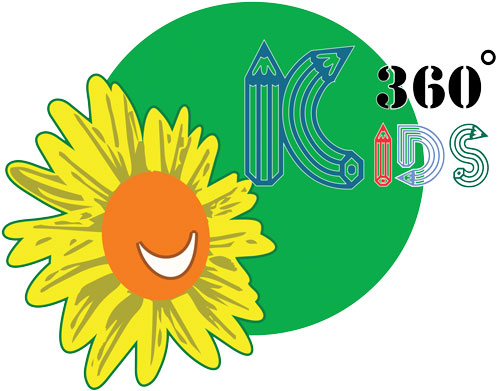Designing and Implementing the Curriculum
Teachers at 360° Kids are tasked with creating and delivering a thoughtfully planned and flexible program that is:
- Challenging yet Attainable: Setting high but achievable expectations for children.
- Integrated and Developmentally Appropriate: Ensuring that activities are suitable for the children’s developmental stages and ways of thinking.
- Culturally and Linguistically Responsive: Adapting the curriculum to reflect the diverse cultural and linguistic backgrounds of the children.
Supporting Continuity in Learning
To support the continuum of learning from one grade to the next, our teachers are well-versed in the curriculum expectations for Grade 1 and beyond. This includes a strong focus on literacy and numeracy foundations, ensuring that children are well-prepared for future academic challenges.
Reflective Practice and Assessment
Teachers use various strategies to understand and meet the individual needs of each child:
- Reflective Practice: Continuously evaluating their teaching methods and student interactions to improve the learning experience.
- Planned Observation: Systematically observing children to identify their strengths, needs, and interests.
- Diverse Assessment Strategies: Using a range of assessments to tailor instruction to each child’s unique abilities.
Instructional Planning
Our teachers plan a balanced mix of instructional activities:
- Whole-Class Instruction: Teaching concepts to the entire class.
- Small-Group Learning: Providing focused instruction to small groups.
- Independent Learning: Encouraging self-directed activities.
- Child-Initiated Activities: Allowing children to choose activities that interest them, promoting autonomy and engagement.
Integrated Learning Experiences
Teachers create learning experiences that are integrated and hands-on, allowing children to:
- Explore and Experiment: Engaging with a variety of materials connected to everyday life.
- Handle Familiar Materials: Using items that children recognize and relate to.
Cultural and Social Context
Understanding the social and cultural contexts of the children’s lives, teachers develop relevant and respectful learning experiences that resonate with their backgrounds and daily experiences.
Collaboration and Consultation
Effective program planning involves:
- Collaborating with Stakeholders: Working with parents, caregivers, resource teachers, assistants, early childhood educators, and the children themselves.
- Sharing Information: Gathering insights about the children’s strengths, needs, interests, and abilities to select suitable materials and plan appropriate activities.
Facilitating Transitions
Teachers play a pivotal role in easing the transition from home to school:
- Building Bridges: Maintaining ongoing communication with families to ensure a smooth transition.
- Encouraging Parental Involvement: Inviting parents to participate in school activities and their child’s education, fostering a strong home-school connection.
Conclusion
At 360° Kids Play School, our teachers are dedicated professionals who understand the importance of a well-rounded, inclusive, and engaging educational environment. By balancing structured instruction with child-initiated activities, and by being responsive to cultural and individual differences, our teachers ensure that each child receives a tailored and enriching early learning experience. Through collaboration with families and continuous reflective practice, they help build a strong foundation for lifelong learning and development.

